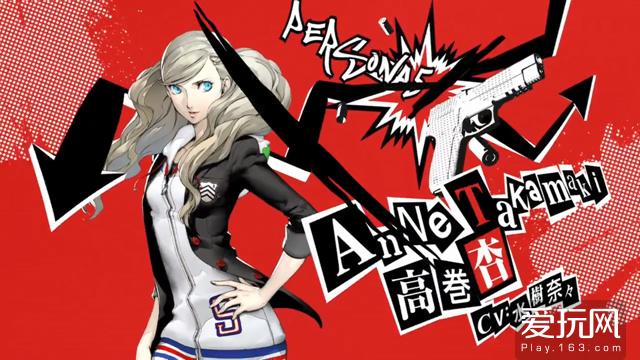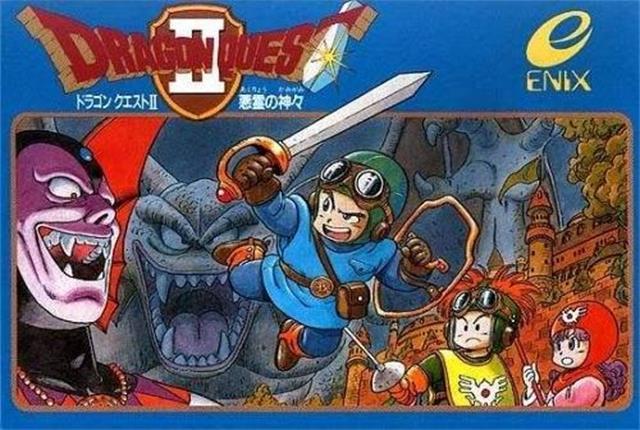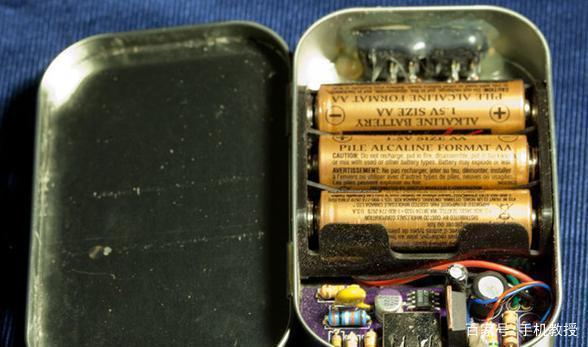Unit3 Travel journal-词汇篇



__________________________________________________________________________________
__________________________________________________________________________________

通过本节课的学习掌握本单词的词语辨析;重点词汇与句型。


一. 词语辨析
1. finally/at last/in the end
【解释】
finally 有两个意思,一是在按顺序列举事物或论点时引出最后一项内容,―最后,末了;
二是表示―在经过很长时间之后才,终于。
另外,finally 一般位于动词前。
at last强调经过一番努力
in the end强调经过许多困难、变化之后,事情才发生
at last和in the end 同finally 的第二个意思
2. across/through/over
【解释】
across 表示从表面上横穿,横跨
through 表示穿过空间内部
over 表示―越过‖,指从较高物体的一侧到另一侧
3. persuade / advise
【解释】
persuade 指通过劝说、感情交流等而使对方做劝说者所希望的事。强调劝说已收到成效。 advise 并不涉及是否有成效
4. beneath / under / below
【解释】
beneath 书面用词,指紧挨……之下
under 普通用词,指在某物的正下方
below 指位置低于某物或在某物下方,但不一定在正下方, 所指范围较宽
二.重点词汇
名词(A) to 名词(B) 喜欢A多于B (比较时,to 两边的成分要一致)
doing to doing 喜欢做…而不喜欢做…
to do rather than do 宁愿干…而不愿意干…( than后要省去to)
sb. to do sth. 宁愿让某人做某事
that sb. (should) do 更宁愿某人干
doing 宁愿干某事
1.prefer
1). I prefer dogs to cats.
猫狗之中我更喜欢狗。
2). I prefer speaking the truth to lying.
我宁愿讲实话而不愿说谎。
3). Would you prefer that we put off our wedding till next mouth?
你是否更愿意把我们的婚礼推迟到下个月?
2. persuade v. 说服;劝说
[典例]
1). We persuaded him to take the job / into taking the job.
我们说服了他接受这份工作。
2). My mother finally persuaded me not to go to the party / out of going to the party.
妈妈最终说服我不参加这次聚会。
3). How can I persuade you of my sincerity?
我如何能让你相信我是真诚的?
4). I am almost persuaded that he is honest.
我几乎相信了他是诚实的。
[重点用法]
persuade sb. to do sth.
= persuade sb. into doing sth.
说服某人做某事
persuade sb. not to do sth.
= persuade sb. out of sth./doing sth.
劝阻某人做某事
persuade sb. of sth. 使某人相信某事
persuade that-clause 使某人相信...
3. insist v. 坚持
[典例]
You can come back later, if you insist.
如果你一定要坚持,你就稍后再来吧。
[重点用法]
insist on/upon sth./( sb’s) doing 坚持某事/要求(某人)做某事
I still insist on my viewpoint.
我仍然坚持我的观点。
He insisted on paying for the meal.
他坚持要付饭钱。
Mother insisted on our washing the clothes by ourselves.
妈妈坚决要求我们自己洗衣服。
4. determine v. 决定;确定;下定决心
[典例]
1). Attitude determines everything.
态度决定一切。
2). We determined to go to the railway station at once.
我们决定立刻去火车站。
3). I wonder what determined her to marry him in the end.
我想知道是什么使她最终下决心嫁给他的。
4). The court determined that the man was guilty of robbery.
法庭裁定那个人犯了抢劫罪。
[重点用法]
determine on/upon (doing) sth.
determine n.
determine to do sth.
determine sb. to do sth. 使某人下定决心做某事
determine that-clause
be determined to do sth.
三.重点词组
1. care about 关心,在乎
[典例]
1). The only thing he cares about is money.
他唯一在乎的东西就是金钱。
2). Family members should always care about each other.
一家人应该互相关心。
[短语归纳]
care for 喜欢(多用于否定、疑问句);照顾
I don’t care for coffee.
我不喜欢喝咖啡。
Could you help care for my child when I am out?
我外出时能帮忙照顾下我的孩子吗?
2. give in 屈服,让步,投降;上交
[典例]
1). Seeing that he could not persuade me, he had to give in (to my view).
由于无法说服我,他不得不认输。
2). It’s time to give in your examination papers.
到了交试卷的时间了。
[短语归纳]
give in (to sb./sth.) 向…让步
give up sth./doing 放弃(做)某事
give away 赠送;泄露
give back 归还;恢复
give off 放出,散发(光、热、烟、气味等)
give over 交付
give out vt. 分配;分发;发布 vi.(食物,燃料,电力等)用光;筋疲力尽
3. change one’s mind 改变主意
make up one’s mind (to do) 下定决心(做某事)
[典例]
1). Maybe you’ll change your mind after thinking it over.
也许你仔细考虑之后会改变主意。
2). I have made up my mind to leave, and nothing you say will change it.
我已经下定决心,不管你说什么我都不会改主意了。
[短语归纳]
与mind 有关的常用短语
have a/no mind to do 有/无意做
lose one’s mind 失去理智
read one’s mind 看出某人的心思
speak one’s mind 直言不讳
be of the same mind 意见一致
be in/of two minds 拿不定主意
give one’s mind to 注意…
keep one’s mind on 专心于…
take one’s mind off sth. 转移某人的注意力
bear/keep sth. in mind 记住某事
bring/call sth. to mind 回忆某事
put sb. in mind of sth. 使某人想起某事
四.本单元重点句子
1. It was my sister who/that first had the idea to cycle along the entire Mekong River.
首先想到沿湄公河骑车旅游的是我姐姐。
[解释]
强调句型 It is/was 被强调部分 that/who 其余部分。被强调部分可以是原句的主语、宾语、状语、从句。
强调主语:
It is the ability to do the job that matters, not where you come from or what you are.
关键是你的工作能力而不是你从哪来或你是谁。
强调宾语:
It was Michael that/who I gave this ticket to.
我把这张票给了麦克。 强调时间状语:
It was about 600 years ago that the first clock with a face and an hour hand was made.
大约600年前,第一个有钟面和时针的钟诞生了。
强调地点状语:
It was in Brooklyn that Beckham first met Victoria, so they named their first son Brooklyn.
布鲁克林是贝克汉姆和维多利亚第一次相遇的地方,所以他们给第一个儿子取名布鲁克林。
强调从句:
It was because he is in critical condition that the doctor decided to operate on him.
医生之所以决定为他动手术,是因为他病情危险。
2. She insisted that she (should) organize the trip properly.
[解释]
insist that-clause
insist 意为―坚持要求(做某事)‖时,宾语从句用虚拟语气,谓语用should do的形式, should可省略;
而insist 意为―坚持认为,坚持某种观点‖时,宾语从句的动词时态根据具体的语境变化,不用虚拟语气。
He insisted that he hadn’t made a mistake.
他坚持认为自己没有犯错。
The bodyguards insisted that the president (should) keep away from the crowd for the sake of safety.
出于安全考虑,护卫人员坚决要求总统远离人群。
suggest (建议),demand (要求),require (要求),request (请求),order (命令)等动词的宾语从句也常用 ―(should) do‖ 表示虚拟语气。

例1.She preferred ______(go)with us rather than ________(stay)behind.
=She preferred ________(go)with us ________staying behind.
例2.I would prefer that you _________________(not; mention)my name.
例3. I don’t __________that color.
A. care for B. care about C. be careful D. take care of
例4) Lily spent years ___________ her sick uncle.
A. caring about B. caring for C. to care for D. to care about
例5). The man insisted ________a taxi for me even though I told him I lived nearby.
A. find B. to find C. on finding D. in finding
例6). Seeing that he was so seriously ill, I insisted that he_______ to hospital at once.
A. was sent B. be sent C. will be sent D. had been sent
例7. The old worker insisted that he _______old, and _______back to the working post again.
A. wasn’t; be sent B. wasn’t; was sent C. be not; send D. isn’t; sent

基础演练
一.语境填词。
1. Have you ever been to the ________ (庙宇) of Heaven in Beijing?
2. I’ll be asleep as soon as my head hits the ________ (枕头).
3. He looked inside the ________ (洞穴) and saw a lion.
4. According to the weather ________(预报),it’s going to stay hot for the rest of the week.
5. It is natural for children to have different ________ (观点) from their parents.
6. ________(火焰) poured out of the windows of the building.
7. The restaurant is open from 5 p.m.to ________ (午夜) every day.
8. He was standing on the bridge looking at the river ________ (在下面).
9. In Africa,cellphones are often the only ________ (可信赖的) way of communicating.
10. From animals,we get such materials as ________ (羊毛),silk, leather and furs.
巩固提高
1.(2014•山东省长山中学高一月考)—Would you like some coffee?
—Yes, and please get me some milk, too. I prefer coffee________ milk.
A.to B. than C. with D. of
2.(2014•浙江温州十校联合体高一期中)You can get to Hong Kong using different kinds of________, by air, by water, or by land.
A.travel B. transport C. schedule D. journal
3.(2014•东北四校联考高一期中)Mary left him, ________ never ________foot in his home again.
A. determined; to set B. determined; place
C. determining;to set D. determining; place
4.(2014•永州市期末)It was yesterday ________he decided to make a trip to Europe.
A. when B. that C. who D. where
5.(2014•吉林省东北师大附中高一期中)He insisted that he ________nothing wrong and he ________punished.
A. had done; not be B. has done; wasn't be C. do; not be D. did; wasn't
6. The man insisted _______ a taxi for me even though I told him I lived nearby.
A. find B. to find C. on finding D. in finding
7. I insist that a doctor _______ immediately.
A. has been sent for B. sends for C. will be sent for D. be sent for
8. Some people insisted that the person _____ a thief and insisted that he _____ to the police station.
A. was; be taken B. was, would be taken C. should be; should be taken D. be; be taken

一.单项选择。
1.The weatherman has ________that it is going to rain tomorrow.
A. told B. guessed C. said D. forecast
2.—Mum, where is my coat?
—Oh, it may be ________the quilt.
A. beneath B. below C. under D. down
3.—Who’s that man over there?
—That’s Mr. Black. He usually takes his dog ________company when walking in the morning.
A. for B. on C.to D. with
4.—Jack, your sister is so lovely. What does she want to do when she grows up?
—She dreams ________a doctor like my mother.
A. becoming B.to become C. of becoming D. about to become
5.—It’s time for us to change our attitude ________the boy.
—Yes. He is no longer a lazy student. xkb1.com
A. with B. for C. on D.to
6.Although he wasn’t feeling well that morning,he went to work after breakfast________.
A. as usual B. at midnight C. as well D. at present
7.We________each other ever since we graduated from high school in the 1990s.
A. didn’t see B. wouldn’t see C. haven’t seen D. hadn’t seen
8.—Do you often cook at home, Lucy?
—No. It is my husband ________does most of the housework.
A. that B. whom C. what D. which
9.Rather than ________computer games at home, I prefer________ some reading in the school library.
A. playing; to do B. play; to do C. playing; doing D. play; doing
10.Doctors________the old man not to smoke so much, but he just couldn’t give it up.
A. persuaded B. promised C. accepted D. advised
二.选词填空
|
dream of, get...interested in, be fond of, change one’s mind, give in, care about, ever since, make up one’s mind |
1. Are you willing to ________________?
2. He ________________ drawing when he was a child.
3. I planned a holiday in May but I ________________ and went in June.
4. I don’t ________________ money if you can help make the machine.
5. Most students ________________ maths by the teacher.
6. Once I ________________,nothing can change it.
7. He is ________________ climbing the highest mountain in the world.
8. I have never met him ________________ 1990.

_________________________________________________________________________________
_________________________________________________________________________________

一.单项填空(共15小题;每小题1分,满分15分)从A、B、C、D四个选项中选出可以填入空白处的最佳选项。
1.You can depend on him; he is a(n) ______man.
A. happy B. interesting C. exciting D. reliable
2.He is sure to come. I’ve ______ him to attend our meeting.
A. advised B. tried to persuade C. persuaded D. suggested
3.I am ______ to set out as early as possible since time is limited.
A. decided B. determined C. minded D. suggested
4. Hawking is familiar ________ Chinese college students and foreigners are familiar ________Qian Xuesen.
A. to; to B. with; to C. with; with D. to; with
5.Although the natural situation was quite bad, the soldiers and volunteers were determined not to ________ rescuing the victims in the ruins(废墟).
A. give in B. give up C. give out D. give away
6.All the goods that were ________ by plane were shared among the homeless villagers far away from our city.
A. sent B. translated C. transported D. given
7.The old man ______ that he ______ from the countryside.
A. insisted on; was B. insisted; be C. insisted on; should be D. insisted; was
8. It is ______ beautiful a picture ______ I’ll hang it in my room.
A. such; that B. such a; that C. so; as to D. so; that
9. He appeared on stage three years ago. We ________ him in the entertainment industry (娱乐界) ever since.
A. haven’t heard B. didn’t seen C. don’t see D. haven’t seen
10. The poem “Children,quickly,hold mother’s hands” is so moving that we are all ______ of it and moved by it.
A. tired B. afraid C. fond D. confident
二.阅读回答案问题。
A
I shook hands with my father in the truck and for a long time he looked straight ahead and didn’t say a word. But I knew he was going to say a little to me. “I, can’t tell anything,” he finally said. “I never went to college, and none of your brothers went to college. I can’t say don’t do this and do that,because everything is different and I don’t know what is going to come up. I can’t help much with money either,but I think things will work out.”
He gave me a new check-book. “If things get pushing,write a small check. But when you write one,send me a letter and let me know how much. There are some things we can always sell.” In four years all the checks I wrote were less than a thousand dollars. My part-time jobs such as reading to the blind student and sitting with the teachers’ kids filled in the financial gaps.
“You know what you want to be,and they’ll tell you what to take,” my father went on. “When you get a job, be sure it’s honest, and work hard.” I knew that soon I would be alone in the big town, and I would be missing the cool winds and a life where your thinking was done for you.
Then my dad reached down beside his seat and brought the old, broken Bible that he had read so often, the one he used when he wanted to look something up in a friendly quarrel with one of the neighbours. I knew he would miss it. I knew, though, that I must take it.
He didn’t say I must read this every morning. He just said, “This can help you if you will let it.”
Did it help? I got through college without being a burden on the family. I have been able to make money since.
( )1.What is the writer’s main purpose (目的) in writing this passage?
A. To tell the readers his life story.
B. To tell people what kind of person his father was.
C. To let people know how poor he was.
D. To tell the readers what present he got from his father.
( )2. Why did the father not ask his son not to do this and do that?
A. Because he felt quite confident of him.
B. Because he was born from a poor family.
C. Because he was a man of few words.
D. Because he didn’t want to be much too strict with him.
( )3.What would you learn from this passage?
A. How to live by oneself.
B. How to stand on one’s own feet.
C. What a good father should do.
D. What the self-important is like.
( )4.What may be the proper Chinese for the underlined part in the passage?
A.闲暇时光 B. 学费 C. 经济不足 D. 精神空虚
B
Claude and Louris are “giraffes”. So are police officers Hankins and Pearson. These men and women don’t look like giraffes; they look like you and me. Then, why do people call them “giraffes”?
A giraffe, they say, is an animal that sticks its necks out, can see places far away and has a large heart. It lives a quiet life and moves about in an easy and beautiful way. In the same way, a “giraffe” can be a person who likes to “stick his or her neck out” for other people, always watches for future happenings, has a warm heart for people around, and at the same time lives a quiet and beautiful life himself or herself.
“The Giraffe Project” is a 10-year-old group which finds and honors “giraffes” in the US and in the world. The group wants to teach people to do something to build a better world. The group members believe that a person shouldn’t draw his or her head back;instead,they tell people to “stick their necks out” and help others. Claude and Louris, Hankins and Pearson are only a few of the nearly 1,000 “giraffes” that the group found and honored.
Claude and Louris were getting old and they left their work with some money that they saved for future use. One day, however, they saw a homeless man looking for a place to keep warm and they decided that they should “stick their necks out” and give him some help. Today, they lived in Friends’ House,where they invite twelve homeless people to stay every night.
Police officers Hankins and Pearson work in a large city. They see crimes every day and their work is sometimes dangerous. They work hard for their money. However,these two men put their savings together and even borrowed money to start an educational center to teach young people in a poor part of the city. Hankins and Pearson are certainly “giraffes”.
( )5. Which of the following is TRUE?
A. Some of the people around us look like giraffes.
B. Giraffes are the most beautiful animal in the world.
C. “Giraffes” is a beautiful name for those who are ready to help other people.
D. A “giraffe” is someone who can stick his neck out and see the future.
( )6. “The Giraffe Project” is a group ________.
A. of police officers
B. which appeared ten years ago
C. of ten-year-old children
D. which takes care of children
( )7. People call Claude and Hankins “giraffes” because they ________.
A. do what is needed for a good world
B .are not afraid of dangerous work
C. found a home for some homeless people
D. made money only for other people
( )8. What does “The Giraffe Project” do?
A. It tells people how to live a quiet life.
B. It helps the homeless and teaches the young people.
C. It tries to find 1,000 warm-hearted people in the US.
D. It shows people what their duty is for a better world.
三.书面表达
假如你叫李华,今年十一和同学到南方某著名旅游城市旅游,在一些景点发现了一些不好的做法。你将给China Daily写信反应这些情况,以引起社会的关注。
时间:十月一日至五日
地点:南方某著名城市
旅行方式:随团
问题:在景点时间有限,购物点去了很多,买回了一些劣质土特产
建议:……
注意:词数100左右;开头和结尾已给出,不计入总词数。
Dear Editor,
As a reader of your paper, I have something that I want you to make known to the public.
__________________________________________________________________________________________________________________________________________________________________________________________________________________________________________________________________________________________________________________________________________________________________________________________________________________________________________________________________________________________________________________________________________________________________________________________________________________________________________________________________________________________________________________________________________________________________________________________________________________________________________________________________________________________________________________________________________________________________________________
,




